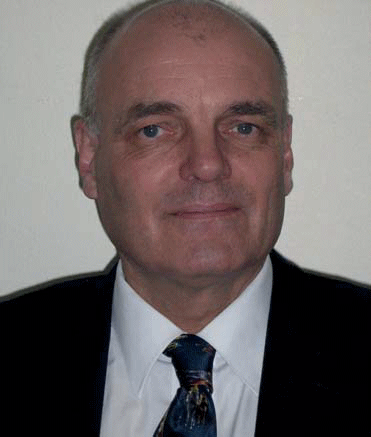Founded 1980
Chair:
Secretary:
Treasurer:
Graham Smith
Jan Thompson
Graham Mumby-Croft
Paul Laxton
Issue 80 Spring 2019
CIVIL SERVICE PENSIONERS ALLIANCE AGM OCTOBER 2018
Immediately following PGA Conference, Harry Brett and I set off for Kenilworth to attend the AGM of the Civil Service Pensioners Alliance in our capacity as group delegates. I refer you back to the last edition of the Newsletter, in which Don Makepiece, Vice-Chair of the CPSA, contributed an article on its’ day-to-day work. I joined the CSPA on retirement, started attending meetings, got elected to the Committee, and in March 2017 became Chair of the West Yorkshire Group.
In most ways, the AGM is very similar to the AGMs and annual conferences of trade unions and other representative bodies up and down the country, except obviously that delegates are older and there are no issues about taking time off work to attend. The format is readily recognisable: reports, motions and guest speakers. The venue is a hotel, until 2017 a faded country pile, but then like the PGA came an upgrade to a four-star hotel, the Chesford Grange near Kenilworth, still remote but at least not next to an airport. There is an overnight stay with dinner, and unlike the PGA venue, the bar does sell cask ale. The AGM voting strength, should a card vote be called was 37,560, again rather different to the PGA. The CSPA can afford a General Secretary, a Deputy General Secretary and an Assistant General Secretary, all
on professional salaries, along with appropriate clerical support. Like the PGA the CSPA is neutral in terms
of political party allegiance, although that stricture did not appear to apply to the anti-Brexit rhetoric of
the outgoing General Secretary.
As with all voluntary organisations, the CSPA spends some time contemplating its navel. Along with motions on finance and discipline, there were a number of motions relating to organisation, as the CSPA grapples with the problem of mothballed branches where there aren't sufficient volunteers to form a committee. It was notable that yet again all of the Executive Committee were re-elected unopposed. Those of you active in other organisations will be all-too-familiar with that state of affairs as voluntarism declines.
There was more than a little disquiet expressed by delegates at the steep rise in travel insurance premiums in 2018 in the CSPA travel insurance scheme. Despite the steep rise in premiums owing to a rise in claims, the scheme remains excellent value if you are a frequent foreign traveller and there are no worries about the insurer looking for a loophole to avoid paying you out. A motion to renegotiate the scheme and separate out European and rest of the world travel was lost after the EC pointed out that world-wide travellers would be the most likely sufferers from such a change, and that the "one size fits all" uniqueness of the scheme would be lost.
With no visible enthusiasm the AGM concurred with the EC that the proposed increase in State Pension Age (SPA) to 68 by 2046 should be accepted: however, speakers were very quick to seize on the final clause of the motion in which it was made clear that if life expectancy falls then not only should a review of the increase in SPA take place, but also that a reduction should be actively considered. As you might expect there were motions on NHS waiting lists, social care, the banking facilities available at post offices, transport, energy, housing and digital exclusion. The EC is mandated to pursue step-free access at railway stations, harry the government about fuel poverty and cold homes, and campaign to stop utility,
insurance and other companies from penalising people who cannot or choose not to do their business on
line.
Sadly the EC did not support a clause in a motion on social care that would have committed them to campaigning for care homes to be brought back into the public sector, and succeeded in having the motion remitted. I have written before about the shambolic and sometimes inhuman nature of private sector provision, and the contempt with which care workers are treated by employers intent on squeezing out every penny of profit at the expense of both staff and clients. Those who believe that the principle of public sector provision is every bit as important as substantially increased funding, will be back next year for another go.
PAUL LAXTON



